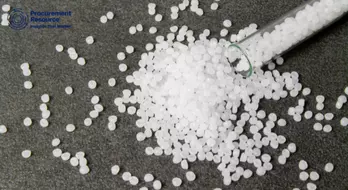Rising Southeast Asia Polyols Market to Stay Soft in May Amidst the Pandemic

Extending global lockdown across the world to curb the coronavirus pandemic is affecting the trade of polyols, resulting in the reduction in its sales volume as well as the spot demand for polyether polyols in Southeast Asia.
Polymeric polyols, upon its reaction with isocyanates, are used in the production of polyurethanes, which are further used to prepare mattresses, home and automotive seats, foam insulation for refrigerators and freezers, fibres like spandex, elastomeric shoe soles, and adhesives. The trade of polyols, which was expected to remain high prior to COVID outbreak, was significantly affected in the Southeast Asian countries in the month of May due to several factors.
The seven day-long celebration on the occasion of the Labour Day in China is one of the major reasons responsible for the disrupted trade. Sudden fluctuations in upstream crude futures that were seen in the months of March and April also contributed to the disrupted market of polyether polyols. Apart from that, legal issues have been impacting the trade as well.
Petitions from the U.S. mattress makers against the mattress of other countries including Cambodia, Indonesia, Malaysia, Serbia, Thailand, and Vietnam, on the grounds that these polyol products are being sold at un-fair industrial values also created a hindrance, leading to the disruption in the product sales; thus, the case of antidumping (AD) and countervailing duty (CVD) filed by the US based mattress makers on 31 March this year is under investigation, and is also affecting the business and the product demand.
Bedding and furnishing shops and automotive plants are closed across several regions, thereby making flexible foam producers and their facilities to remain shut. Several cancellations and postponements of orders have been observed due to these closures. Moreover, since some consumers filled their stocks in March owing to the fear of the pandemic, it contributed to a decrease in the product sales for the following months.
It has been observed that the demand for finished goods is quite stagnant in the U.S and Europe and because of this, most buyers from these regions are not interested in committing to spot sales for certain polyol grades like the flexible foam polyols.
Further, due to limited demand and enquiries, China-based polyols producers are focusing more on the Chinese local market as the domestic demand in the region remains stronger than the demand from regions like the US and Europe, which appears to be sluggish, and thus, these producers are holding back on offers for May shipment products.
The scheduled shutdown maintenance projects carried out for the maintenance of upstream products such as propylene oxide (PO) and propylene, which are used in the production of polyols, also got affected and postponed. The reason for the postponement of this project was the lack of human resources, which makes it impossible to carry out the maintenance process post shutdown in the region of Southeast Asia. Thus, on the supply front, the available volume of polyols is likely to stay high.
Low molecular weight polyols, which function as crosslinking agents, find wide applications in polymer chemistry. For instance, alkyd resins are used in paints and in moulds for casting. Alkyd resins serve as the significant resin or "binder" in most commercial oil-based coatings. Commercial alkyd resins are produced using the polyols like glycerol, trimethylolpropane, and pentaerythritol.
It was estimated that nearly 200,000 tons of alkyd resins are produced each year but this volume might drop this year due to the outbreak of the pandemic and resulting downfall in the demand for polyols and its end use products. It has been estimated that there was a downfall in the prices of polyols between 4th March and 22nd April with an average of $1,430/tonne CFR SouthEast Asia to $1,300/tonne CFR SouthEast Asia.
Polyol industry is looking at the latest updates related to lockdown and hoping it to be lifted soon. But since the number of cases of the novel coronavirus are continually increasing, chances are that the lockdown would not get lifted anytime soon. Hence, the demand for polyols is expected to remain low for the month of May.
A downward pressure might continue in the polyol market since the supply of polyol from the manufacturers has been slowly decreasing, and the demand is also low. The volatile oil prices of the crude oil is another reason creating a downward pressure in the polyol market.
Any business engaged with polyol industry must have knowledge about the ongoing polyol market conditions. An in-depth market research and real-time data can prove to be beneficial while understanding the market trends and the prevalent conditions in the global polyol industry.
Procurement Resource ensures that our clients remain at the vanguard of their industries by providing actional procurement intelligence with the help of our expert analysts, researchers, and domain experts. Our team of highly-seasoned analysts undertakes extensive research to provide our customers with the latest and up-to-date market reports, cost-models, price analysis, benchmarking, and category insights, which aid in simplifying the procurement process for our clientele.
We work with a diverse range of procurement teams across industries to get real-time data and insights that can be effectively implemented by our customers. We also track the prices of an extensive range of goods and commodities, thus, providing you with updated and reliable data.
We, at Procurement Resource, with the help of the latest and cutting-edge techniques in the industry, help our clients understand the supply chain, procurement, and industry climate so that they can form strategies that ensure their optimum growth.


.webp)

